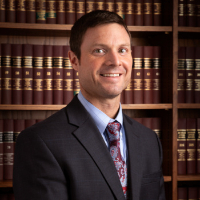Union City DUI-DWI Lawyer, Michigan
Sponsored Law Firm
-
 x
x

Click For More Info:
-
Hannawa Law PC
2909 E Big Beaver Rd Troy, MI 48083» view mapCriminal Defense Law Full-service legal experts on your side.
Whatever the specific details of your situation may be, our attorneys are ready to fight for you and guide you through every step of the process.
248-466-0770
Wesley Johnson Todd
✓ VERIFIEDDUI-DWI, Criminal, Bankruptcy, Divorce & Family Law
Wesley Todd originally joined the firm as an intern in 2008. He has been a shareholder of the firm since 2020. He was born in Kalamazoo, Michigan and ... (more)
FREE CONSULTATION
CONTACTZachary William Stempien
Litigation, Family Law, DUI-DWI, Personal Injury
Status: In Good Standing Licensed: 7 Years
Christopher M. Baldwin
DUI-DWI, Criminal, Insurance, Personal Injury
Status: In Good Standing Licensed: 11 Years
Leo J. Foley
Lawsuit & Dispute, Family Law, DUI-DWI, Bankruptcy & Debt
Status: In Good Standing Licensed: 43 Years
FREE CONSULTATION
CONTACTMarina Liane Chupac
DUI-DWI, Personal Injury, Employment Discrimination, Limited Liability Companies
Status: In Good Standing
Nathaniel A. Taylor
Criminal, DUI-DWI, Traffic, Personal Injury
Status: In Good Standing Licensed: 12 Years
Peter A. Taylor
Motor Vehicle, Estate, Misdemeanor, DUI-DWI, Criminal
Status: In Good Standing Licensed: 12 Years
 Nickolas Hannawa Troy, MI
Nickolas Hannawa Troy, MI AboutHannawa Law PC
AboutHannawa Law PC

